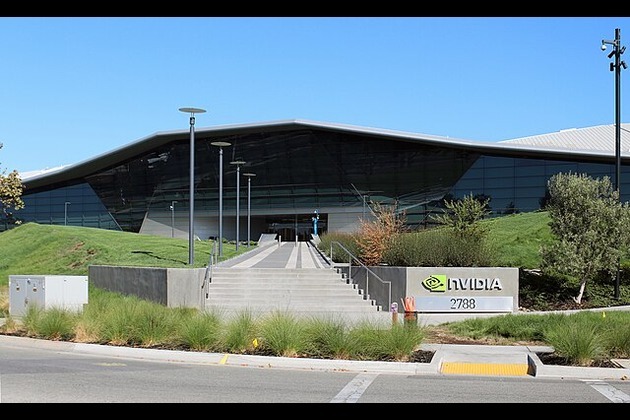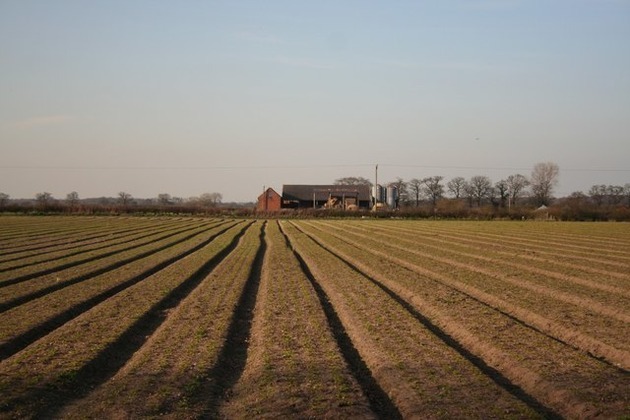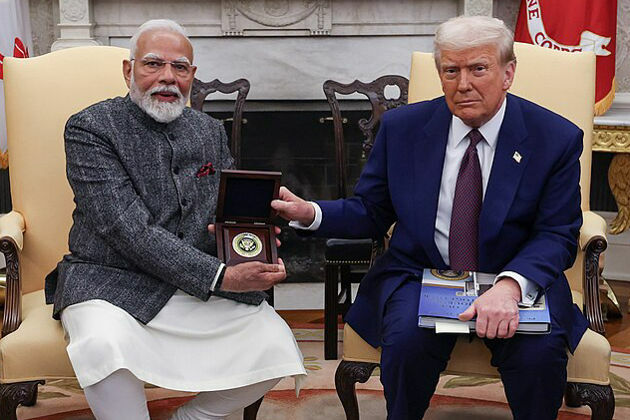INSIDE LABOUR: 4IR and the ideological prison
News24
12 Jul 2019, 17:43 GMT+10

Last month saw the idea of a new, 21st Century city, complete with bullet trains, widely broadcast, all within the framework of a "developmental state". But what this really boiled down to was a rehash of 20th Century concepts that produced Shenzhen, Brazilia, Canberra - even London's Barbican - and, of course, the bullet trains and economic resurgence of post war Japan.
In other words, it amounted to looking backward and projecting forward, without taking full cognisance of radically changed circumstances. Not that there has been no mention of "developments that go far beyond technology" and that could impact on the economic and social system.
The problem, as always, seems to be that these looming problems are seen as difficulties to be carefully managed within the existing economic system and the socio-political realities that flow from it. That the framework itself - the system of increasing inequality in which we live- may be the real problem tends to be all but ignored.
So we continue to hear debates about how to upskill and educate the workforce in order to become more competitive; this in the face of the first technological revolution that could replace almost all human labour. In a world that already has the capacity to produce a surplus of probably every socially necessary product, this is clearly nonsense.
Cost-cutting
Competition among producers also means cost-cutting that not only speeds up the process of automation, but also continues to pollute the oceans, soil and air. Such competition, geared to maximise profits for a tiny minority, is harmful not only to the planet, but to the vast, and increasingly unemployed, majority.
Yet the great technological advances that threaten - perhaps within the next 30 years - to make much of humanity redundant, have the capacity to create a better life for all. But not within the existing economic system and the political and social framework that sustains it.
READ: INSIDE LABOUR: Rainbows, dreams and ethical journalism
As the scientist and speculative fiction author, Isaac Asimov noted, half a century ago: "The saddest aspect of life right now is that science gathers knowledge faster than society gathers wisdom." But wisdom tends to come to the majority only with access to accurate information and the self-confidence borne of democratic control.
Yet the working majority - whether currently employed or unemployed - are deprived of real power. We are told look to leaders who are, in most cases, merely the pipers who are paid by the rich minority who call the tunes designed to beguile us.
Only when the majority realises that society is trapped in - and acts to break out of - this ideological prison, will the true potential for practical dreaming arrive. The potential exists. What it requires is a clear pathway to implementation.
Leaders making what amount to wild promises without any effective thought as to how they may be achieved, cause bitterness and frustration. Revolutions that herald new dawns do not emerge from such scenarios, they tend to fuel often wanton destruction and the release of directionless fury; we already have enough of that on an almost daily basis around the country.
Early warning
In previous columns on this topic I have quoted the "father of cybernetics", Norbert Wiener, as having warned in 1949 about the economic inequalities and growing joblessness we now face. But he also saw that the age of the machine could liberate humanity.
It could. And it might still do so if, to again quote Wiener, "We can be humble and live a good life with the aid of the machines, or we can be arrogant and die."
Humility in this case means accepting the inherent equality of all humanity, democratic control, rather than the arrogance of the rulers over the ruled. And that means the radical transformation of the political and social system and the dismantling of a global economy based on the exploitation of the many by the few.
Over the past week, there was a largely missed chance to deal with this at the first digital economic summit in South Africa. Looming problems such as automation leading to "large scale displacement" and the rise in inequality in a world of high-tech producers and low-tech consumers were raised at the Johannesburg gathering.
But in talking about a "digitally enabled economy that is transformative, fair, sustainable and competitive" President Cyril Ramaphosa again looked backwards. It was almost a case of reinventing the wheel when he raised the prospect of a South African "Silicon Valley".
Wasted potential
The world has been there - and done that. In China today, for example, there are more than 1 600 innovation hubs and high-tech cities dotted around the country: many "Silicon Valleys" competing with one another and constantly reducing the need for human labour.
READ: INSIDE LABOUR: Thuma Mina (send me) - to Geneva?
The call to be competitive is the fault. In such a system, there are winners and losers among the competing corporations and their billionaire chiefs. But the major losers in every case are the increasingly disposable working masses.
This amounts to the most horrendous waste of human talent and resources; talent that could be liberated by technological innovation to help build a truly great and peaceful world. And it is not as if the human talent and ability does not exist.
Ignored, even disparaged, for example, are the innovations employed by the waste pickers who, despite incredible odds, manage to survive and support families on the detritus of society. There are also legions of working homeless, already part of the army of the discarded, who often display an entrepreneurial flair rarely found even in the upper echelons of business.
These are just two examples of the most horrific waste of human potential that will only become worse, across the board, if radical steps are not taken to break out of the ideological prison that history has bequeathed us. It has to start somewhere and South Africa seems as good a place as any.
 Share
Share
 Tweet
Tweet
 Share
Share
 Flip
Flip
 Email
Email
Watch latest videos
Subscribe and Follow
Get a daily dose of South East Asia Post news through our daily email, its complimentary and keeps you fully up to date with world and business news as well.
News RELEASES
Publish news of your business, community or sports group, personnel appointments, major event and more by submitting a news release to South East Asia Post.
More InformationInternational
SectionTragedy in Spain: Diogo Jota and his brother die in car accident
MADRID, Spain: Liverpool footballer Diogo Jota and his younger brother, André Silva, have died in a car accident in Spain. Spanish...
Early heatwave grips Europe, leaving 8 dead and nations on alert
LONDON, U.K.: An unrelenting heatwave sweeping across Europe has pushed early summer temperatures to historic highs, triggering deadly...
U.S. military, China, Russia in Space race
President Donald Trump's plans to build a space-based Golden Dome missile defense shield have drawn immediate criticism from China,...
Trump wins $16 million settlement from Paramount over CBS Harris edit
NEW YORK CITY, New York: Paramount has agreed to pay US$16 million to settle a lawsuit brought by U.S. President Donald Trump over...
British PM faces major party revolt over welfare reforms
LONDON, U.K.: British Prime Minister Keir Starmer won a vote in Parliament this week to move ahead with changes to the country's welfare...
White House meeting between Trump, Netanyahu on July 7
WASHINGTON, D.C.: President Donald Trump will meet Israeli Prime Minister Benjamin Netanyahu at the White House on Monday. President...
Business
SectionEngine defect prompts Nissan to recall over 443,000 vehicles
FRANKLIN, Tennessee: Hundreds of thousands of Nissan and Infiniti vehicles are being recalled across the United States due to a potential...
Microsoft trims jobs to manage soaring AI infrastructure costs
REDMOND, Washington: Microsoft is the latest tech giant to announce significant job cuts, as the financial strain of building next-generation...
Stocks worldwide struggle to make ground Friday with Wall Street closed
LONDON UK - U.S. stock markets were closed on Friday for Independence Day. Global Forex Markets Wrap Up Friday with Greeback Comeback...
Nvidia briefly tops Apple’s record in AI-fueled stock rally
SANTA CLARA, California: Nvidia came within a whisker of making financial history on July 3, briefly surpassing Apple's all-time market...
ICE raids leave crops rotting in California, farmers fear collapse
SACRAMENTO, California: California's multibillion-dollar farms are facing a growing crisis—not from drought or pests, but from a sudden...
Trump signals progress on India Trade, criticizes Japan stance
WASHINGTON, D.C.: President Donald Trump says the United States could soon reach a trade deal with India. He believes this deal would...













